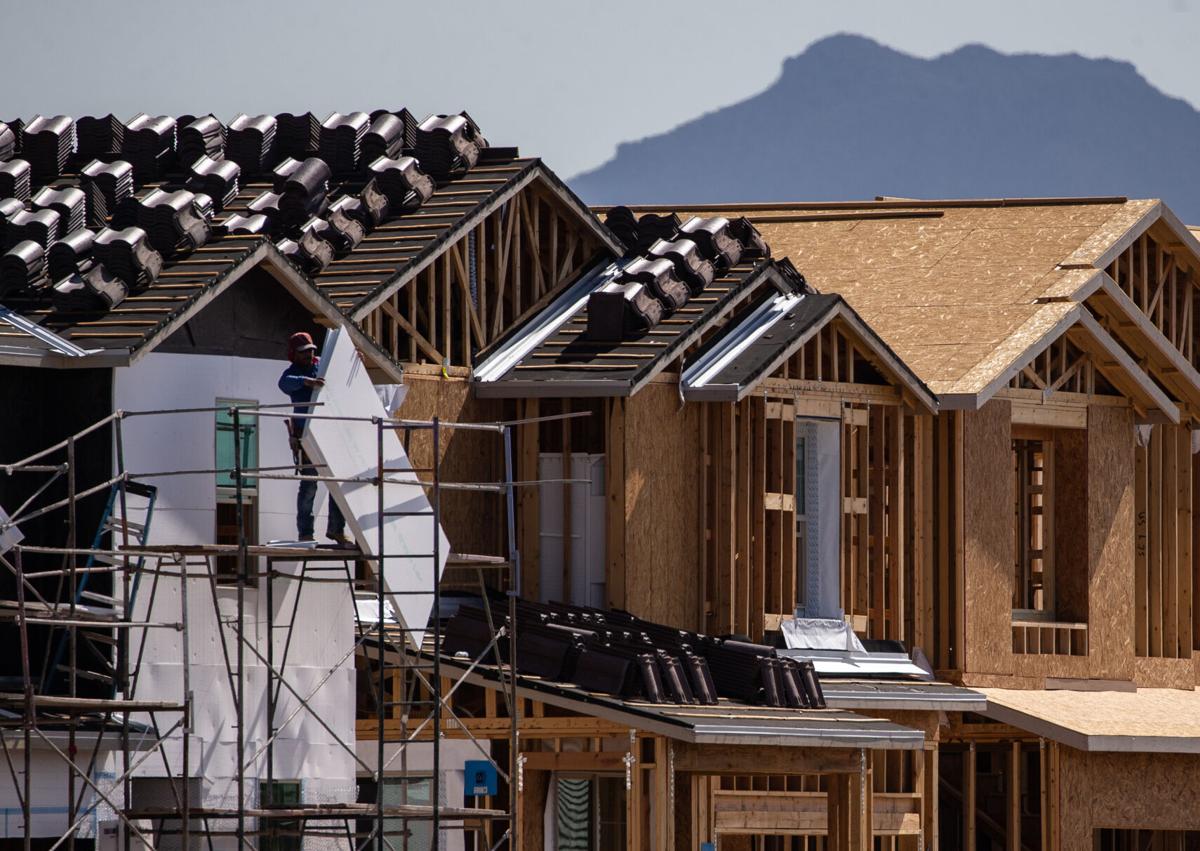Tucson and Arizona continue to recover from the economic ravages of the COVID-19 pandemic faster than the nation as a whole.
But the recovery has been uneven, and it will likely take until at least next spring for the state to reach peak employment levels seen before the pandemic, University of Arizona’s top economists said Thursday at a virtual economic outlook event.
“Overall, Arizona’s jobs recovery continues to go, but we’ve still got a long way to go,” said George Hammond, research professor and director of the Economic and Business Research Center at the UA’s Eller College of Management.
Hammond noted that as of April the state had replaced about 71% of the jobs lost at the onset of the pandemic but still has about 95,000 fewer jobs than when the pandemic began.
Assuming COVID-19 vaccinations progress and no major new variant outbreaks occur, the UA economics center’s baseline projection calls for state job levels to regain their pre-pandemic peak in the first quarter of 2022 and to increase by 643,000 over the next decade.
Under a pessimistic scenario, that would happen in the third quarter of 2022, and the state would add 577,000 jobs by 2030.
An optimistic outlook calls for Arizona jobs to regain their pre-pandemic high in the fourth quarter of this year and to rise by 778,000 during the next decade.
“Overall, the outlook is strong in the near term for Arizona, Phoenix and Tucson,” Hammond said. “Job and population gains, I think, are expected to accelerate over the next couple of years, but we’ll see income growth and taxable sales actually decelerate significantly,” he said.
Hammond cited the results of the recent U.S. census, which showed that Arizona added almost 760,000 residents, an increase of 11.9%.
That ranked Arizona 10th among the fastest-growing states but amounted to the slowest decade-long population growth rate since 1900, he said.
But solid population growth is likely to continue as Arizona’s relatively low cost of living, strong job growth and natural amenities draw migrants from other states, Hammond said.
Though Arizona is expected to see job growth of 4.3% this year, after a 2% drop last year, personal income is forecast to grow only 0.9%, and retail sales, including remote sales, are expected to increase only 4.4% this year, and that growth rate is expected to fall to 3.1% in 2022.
Fiscal stimulus has driven strong income growth, which boosted consumer spending, but that will end later this year.
The leisure and hospitality sector has seen some recovery, as restaurant and bar sales are now back to pre-pandemic levels and gas sales are up, Hammond said.
But hotels, motels and amusement and recreation businesses are still struggling, after the overall leisure and hospitality sector lost 54,500 jobs from February to October 2020, including 4,000 in Tucson alone.
Arizona’s housing market is strong, with revised building permit activity estimates for 2020 showing combined permits for single- and multi-family homes expected to top 60,000 statewide — the highest level since 2006.
The housing market should help support construction jobs, which the UA center projects will grow by nearly 20,000 by 2030.
On the negative side, home prices continue to surge, driving down affordability.
The uneven nature of the recovery shows as some sectors are expected to take much longer than others to regain lost jobs, Hammond said.
Leisure and hospitality jobs remain about 46,000 jobs below the pre-COVID-19 peak, and the government, professional and business services, education and health services all have not yet recovered all the jobs lost to the pandemic, Hammond noted.
The one bright spot in the jobs picture is the trade, transportation and utilities sector, thanks to accelerated online shopping and demand for delivery services.
Hammond said he expects online shopping and delivery services to taper off a little as the brick-and-mortar economy recovers, but those industries will continue strong growth.
Climate-change
economics
As part of Thursday’s economic outlook, UA associate economics professor Derek Lemoine gave an overview on how climate change is affecting the economy.
Lemoine, who has published more than a dozen papers on climate change issues since 2013, said global warming caused by buildup of carbon dioxide is expected to impact nearly every facet of the global economy.
Researchers have predicted significant impacts of climate change and the extreme weather that comes with it, including rising sea levels that could displace millions of coastal residents, overall increased mortality, falling crop yields, increased energy demand and even lower student test scores that could affect future earnings.
"Temperatures do affect things in a surprising way," Lemoine said. "It does seem that climate is going to matter across the economy and probably not in a super-positive way."
Businesses worldwide now have recognized the risk of climate change, he said.
"It matters for the broader economy, not just sectors like manufacturing and construction," Lemoine said. "Global warming is already being priced into the market — they actually price climate risk, and they want that risk to be resolved.”
The U.S. lags other nations, particularly the European Union states, at putting a price on carbon in order to control emissions through credit systems, he said.
The U.S. has backed off from such steps, which would help guide the markets to clean fuels, Lemoine said.
That triangle of arrows indicates the item is recyclable, but not necessarily here in Tucson or Pima County. The little number in the middle is important. Video courtesy of Tucson Environmental Services.





